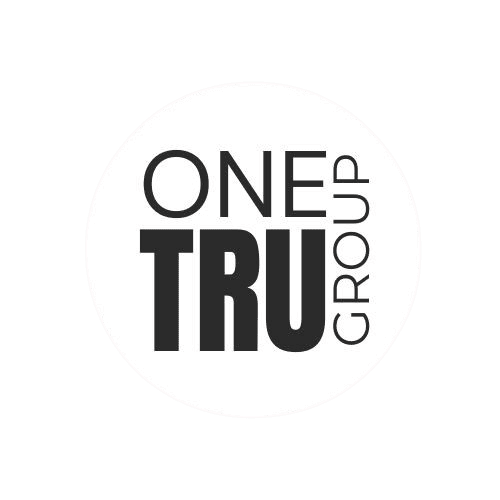Understanding the Concept of EOR
An Employer of Record (EOR) is a third-party organization that takes on the responsibilities and liabilities of employing staff on behalf of another business. This arrangement allows companies to outsource various aspects of human resource management, facilitating international expansion and recruitment without the need for a local entity. The EOR manages a range of crucial functions, such as compliance with local labor laws, payroll processing, employee benefits provision, and tax contributions, thereby allowing the client company to focus on its core business activities.
The primary role of an EOR is to ensure that all employment practices are in accordance with legal obligations, which can differ substantially from one jurisdiction to another. By partnering with an EOR, businesses can mitigate the risks associated with employee hiring and management in new markets. This relationship effectively shifts the burden of compliance, enabling organizations to engage employees confidently, knowing that the EOR will handle the complexities of local regulations and ensure adherence to labor laws.
In addition to compliance, an EOR also manages payroll, making timely payments to employees while handling deductions for taxes and social security contributions. This service is immensely beneficial for companies without existing payroll infrastructure in the regions they are expanding into. Furthermore, an EOR provides a host of employee benefits such as health insurance, retirement plans, and paid leave, which enhance the attractiveness of job offers and improve overall employee satisfaction and retention.
By leveraging an EOR, organizations can streamline their operations and reduce administrative burdens, demonstrating clear advantages and benefits to businesses seeking growth. This strategic outsourcing solution not only facilitates compliance and payroll management but also enhances overall operational efficiency, making it an increasingly popular choice among companies looking to expand their workforce without increasing overhead costs.
Cost Efficiency and Financial Flexibility
Outsourcing eor (Employer of Record) presents numerous financial advantages and benefits that can significantly impact businesses, particularly in terms of cost efficiency. By utilizing an EOR, companies can substantially reduce overhead costs that typically accompany hiring employees directly. These overhead costs often include expenses related to payroll management, benefit administration, and compliance with local labor laws. When these processes are outsourced, businesses can transfer the financial burden of these responsibilities to specialized providers, allowing for streamlined operations and reduced expenditures.
Moreover, engaging in outsourcing can minimize legal risks associated with employment practices. Mishandling compliance issues can lead to costly fines and legal challenges. An EOR manages every aspect of compliance, including local labor laws and tax regulations, thus freeing organizations from the penalties that may arise from non-compliance. This not only safeguards against potential liabilities but also enhances peace of mind, enabling businesses to focus on their core functions without the fear of unexpected financial burdens.
Additionally, outsourcing payroll and human resources tasks enables greater financial flexibility. Resources that would otherwise be tied up in recruitment and HR management can be reallocated toward growth initiatives or other operational areas. Companies can invest more efficiently in technology, product development, or market expansion, leading to enhanced overall productivity. This strategic allocation of resources becomes paramount, especially for small to medium-sized enterprises that may not have the budget to maintain extensive in-house teams.
In summary, the advantages and benefits of outsourcing an EOR extend far beyond just immediate cost savings. They provide organizations with a robust framework to navigate the complexities of employment management while fostering financial agility. By leveraging EOR services, businesses can thrive in a competitive marketplace, poised for substantial growth and success.
Streamlined Operations and Access to Global Talent
Utilizing outsourcing EOR (Employer of Record) services can significantly streamline operations for businesses aiming to expand their reach internationally. One of the primary advantages and benefits of employing an EOR is the simplification of hiring processes across borders. Traditional hiring methods often involve navigating complex legalities, taxation, and compliance issues unique to each country. However, EOR services bypass these challenges by taking over the responsibilities associated with payroll, benefits, and regulatory compliance for employees, thereby enabling companies to focus on their core operations.
Additionally, the reduction of administrative burdens allows businesses to allocate their resources more effectively. By outsourcing to an EOR, companies do not need to maintain a local entity in every market they wish to enter. This not only diminishes overhead costs but also accelerates the time to market, enabling businesses to adapt swiftly to changes and capture growth opportunities more efficiently. The expeditious nature of EOR partnerships means that firms can onboard new talent without the hurdles typically associated with international employment.
Furthermore, accessing a global talent pool enriches the workforce diversity, which can contribute a variety of perspectives and innovative ideas to the organization. Hiring talent from different regions helps businesses tailor their strategies and products to meet the diverse needs of a global market. Moreover, leveraging BPO (Business Process Outsourcing) strategies through EOR services not only enhances operational expertise but also fosters an environment of inclusivity. The integration of employees with varied backgrounds can lead to a more robust problem-solving approach, ultimately driving better business outcomes.
In conclusion, the advantages and benefits of outsourcing EOR services are multifaceted—streamlining operations, facilitating international talent acquisition, and enhancing workforce diversity are among the most impactful outcomes for companies looking to unlock growth opportunities in new markets.

Enhanced Compliance and Risk Mitigation
In today’s intricate and ever-evolving business landscape, compliance with local employment laws, regulations, and tax obligations has become a paramount concern for organizations. Outsourcing EOR (Employer of Record) services provides companies with a strategic partner to ensure they navigate these complexities effectively. One of the significant advantages and benefits of engaging an EOR is the assurance of compliance with legal requirements, which can be a daunting task without specialized knowledge.
An EOR takes on the responsibility of understanding and managing local employment laws on behalf of businesses, thereby reducing the burden on organizations. By outsourcing to an EOR, companies minimize the risk of penalties that often arise from non-compliance, which can severely impact their financial health and reputation. EORs are well-equipped with the necessary expertise to handle the intricacies of various regulations, including labor laws, tax codes, and benefits administration. This level of specialization ensures that businesses can focus on their core operations while leaving compliance matters in the hands of professionals.
Furthermore, partnering with an EOR mitigates risks associated with employment disputes and legal challenges. Employment law violations can lead to costly litigation and damaged reputations. By leveraging an EOR, businesses gain access to a framework designed to manage such risks proactively. EORs often implement best practices related to hiring, terminations, and employee relations, ensuring that clients remain compliant with employment regulations.
Ultimately, the peace of mind derived from outsourcing to an EOR allows organizations to operate with confidence. They can be assured that their employment practices are in compliance with local laws, safeguarding against potential legal issues. As businesses continue to seek operational efficiencies, the role of an EOR in providing enhanced compliance and risk mitigation will undoubtedly remain critical in driving sustainable growth.





